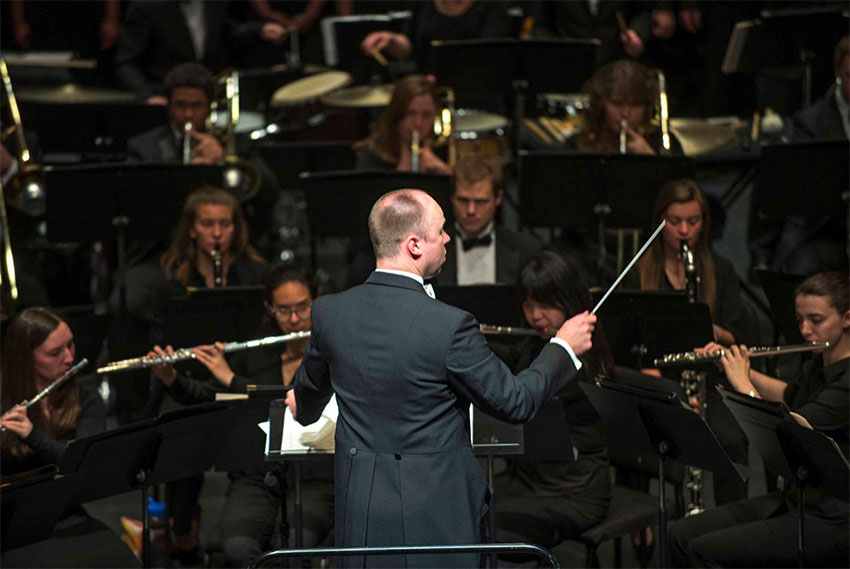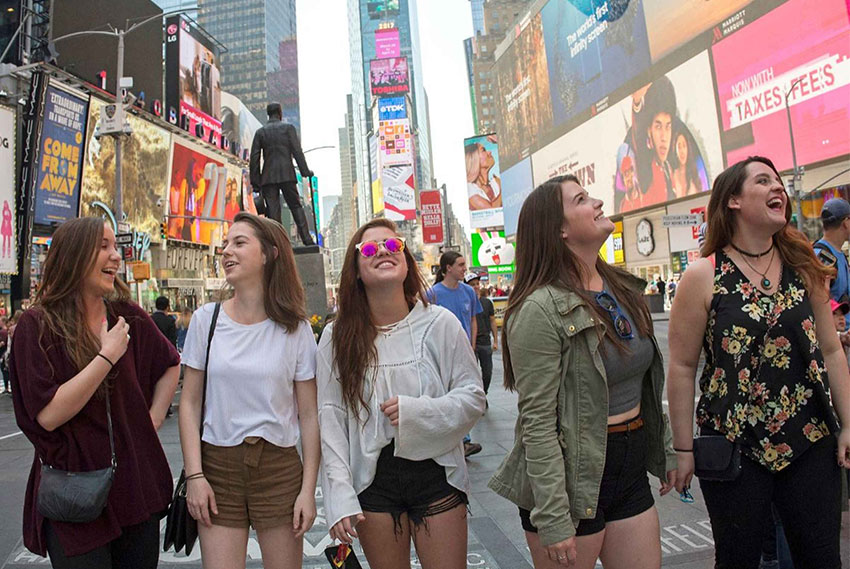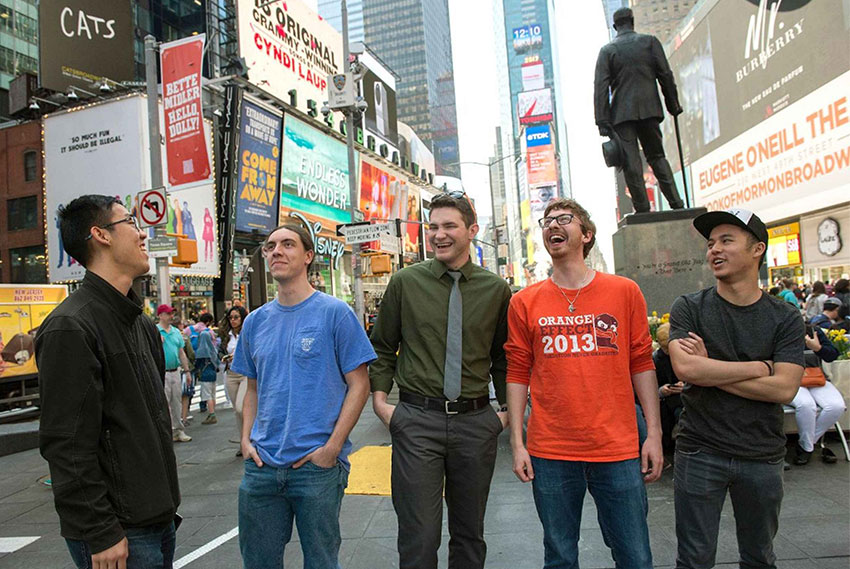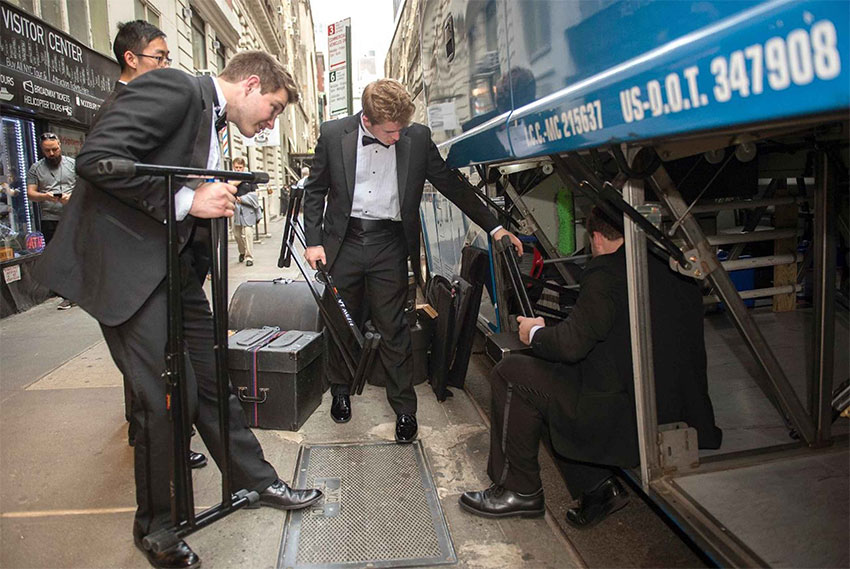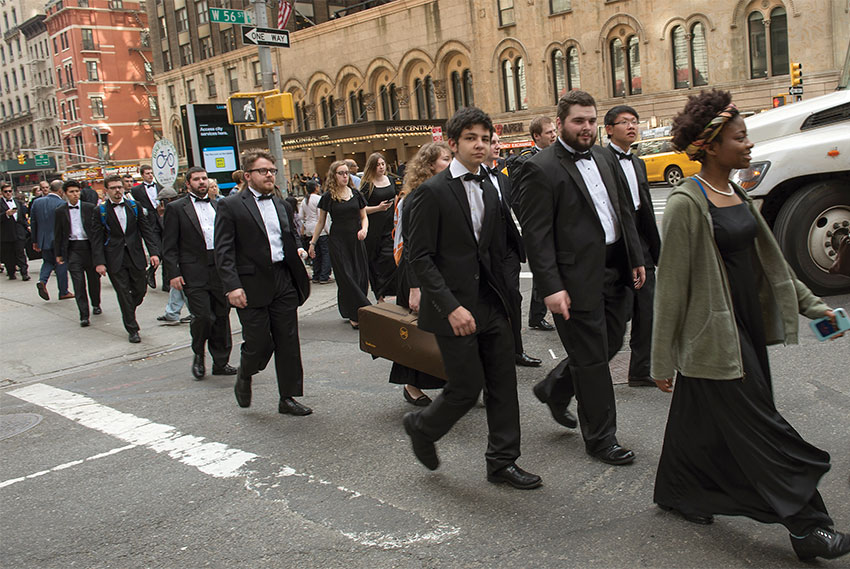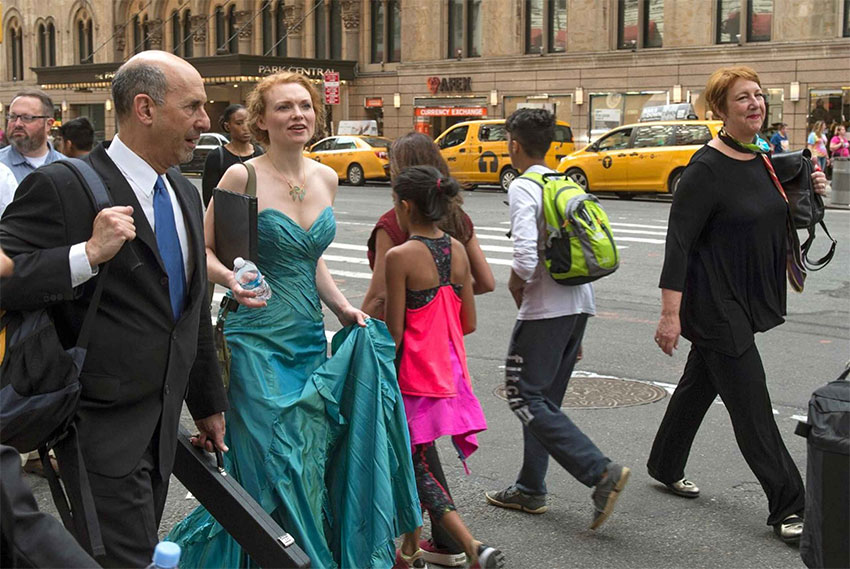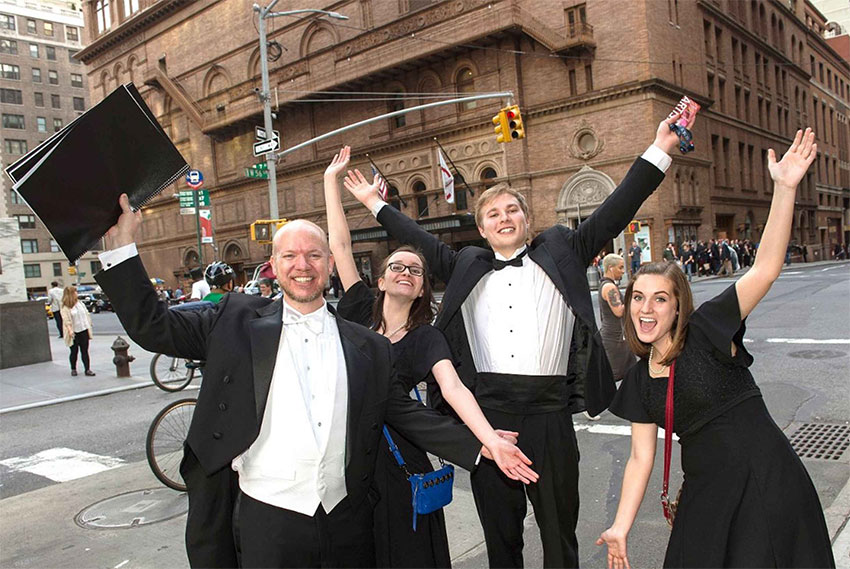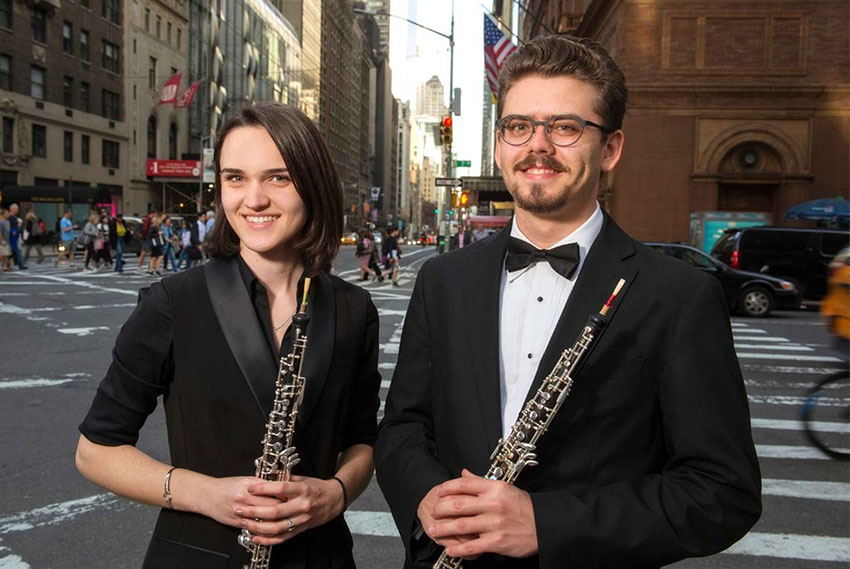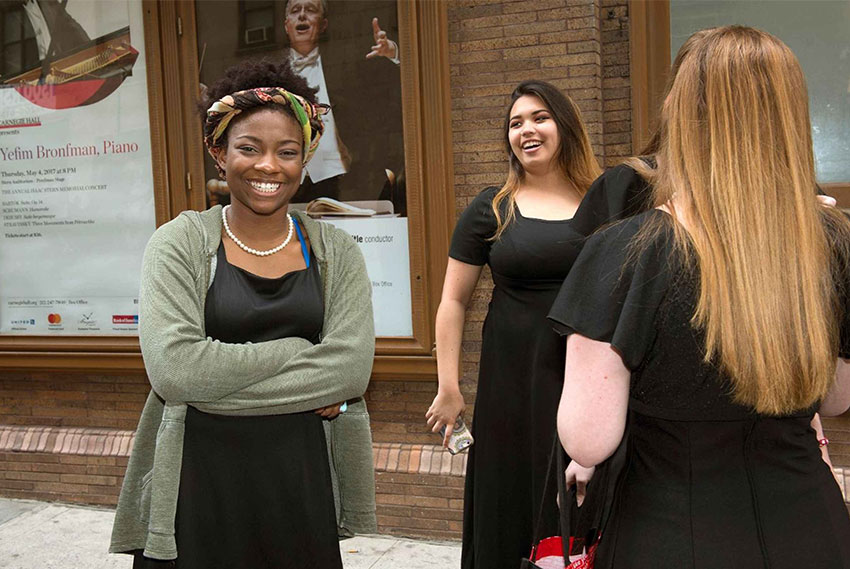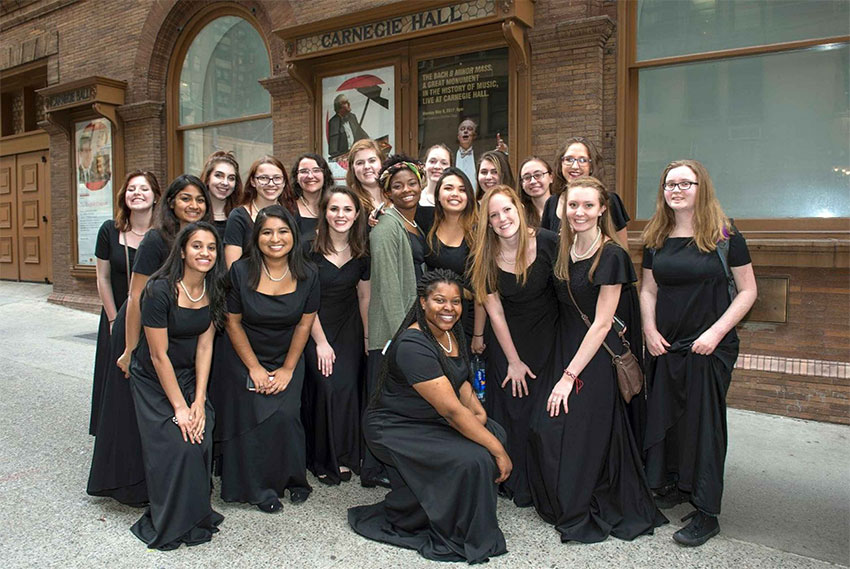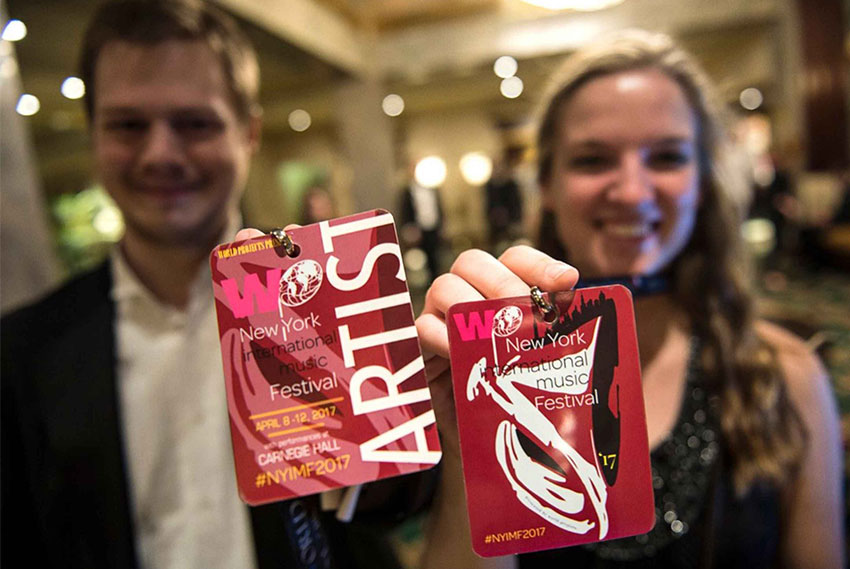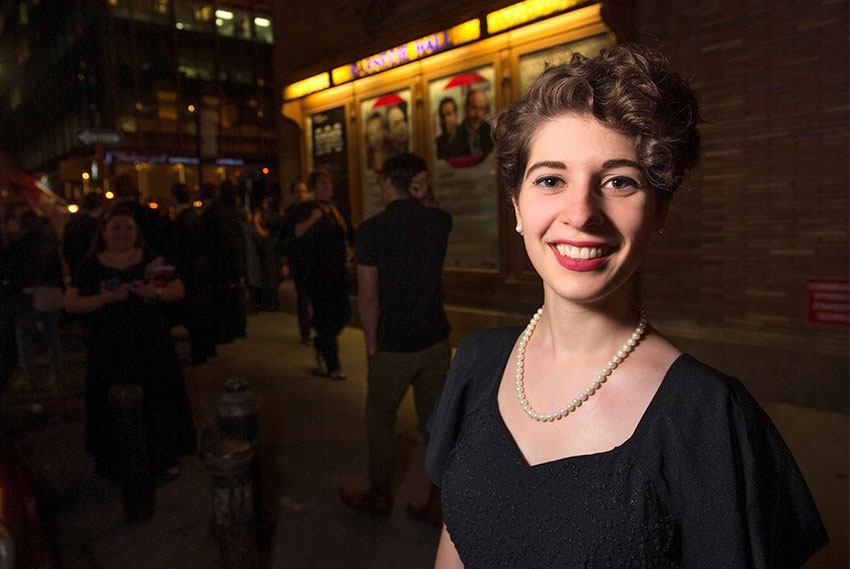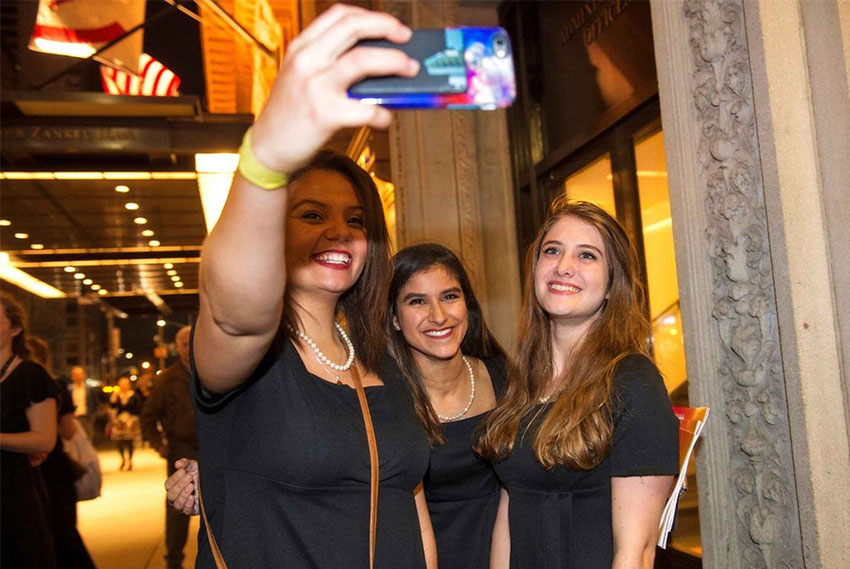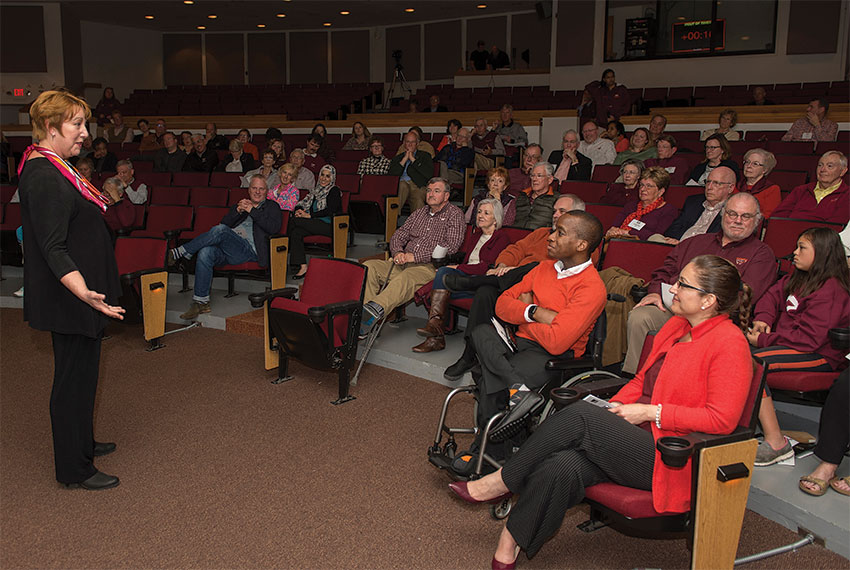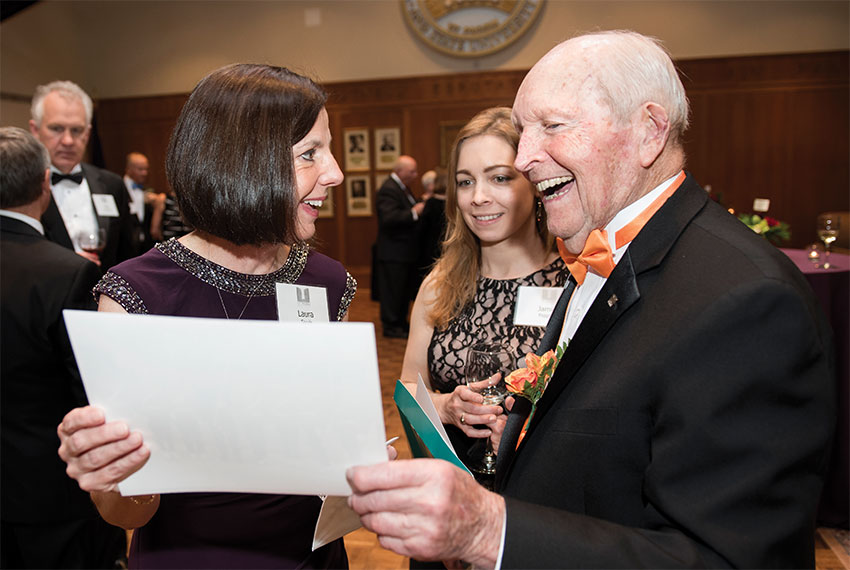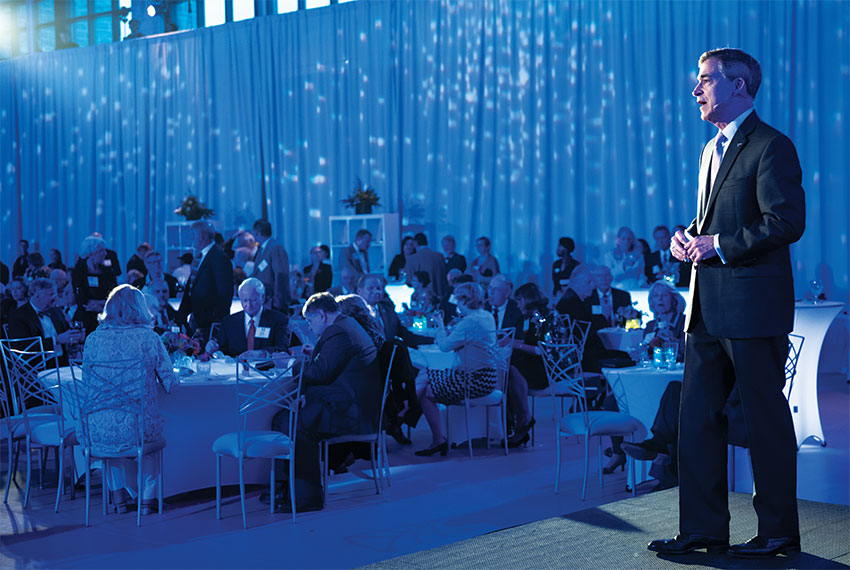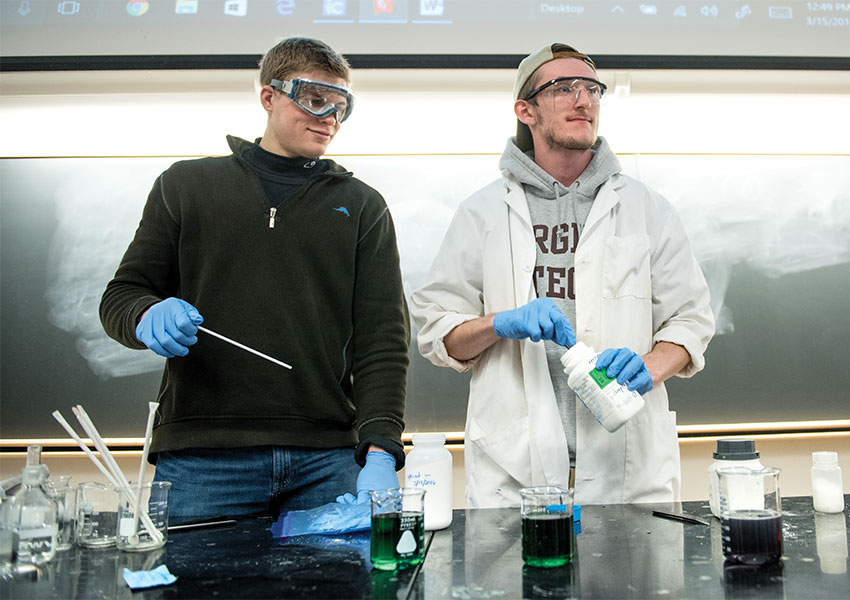
Imagine a lecture hall filled to capacity. The class is general chemistry, the topic for the day: acid-base equilibria. For many, the scenario sounds like a remedy for insomnia, but on a March day in Davidson Hall, nearly 300 Virginia Tech students sat in rapt attention, fully focused on advanced instructor Shamindri Arachchige's lecture.
Throughout the room, standardized notes were projected on screens. Occasionally, Arachchige posed a question. Students actively responded — but not in a cacophony of voices — through iClickers, which transferred their responses to a computer for immediate tabulation. Midway through class, Arachchige called up a pair of students. The volunteers donned lab coats and goggles to demonstrate a principle using brightly colored liquids in beakers on lab tables.
In large classrooms, instructors, like Arachchige, often employ these special teaching methods to ensure student success. The techniques keep classes feeling relatively small and personable — and therefore easier for students to follow.
Such innovations were rewarded recently with the Virginia Tech 2016 Exemplary Department Awards, which recognized "effective large-class instruction." The winners included three departments within the College of Science: Physics, Chemistry, and Biological Sciences.
"We in the College of Science are honored to teach more than 220,000 student credit hours for undergraduates each year, which is close to 50 percent of the undergraduate teaching that takes place at Virginia Tech," said Sally C. Morton, dean of the College of Science.
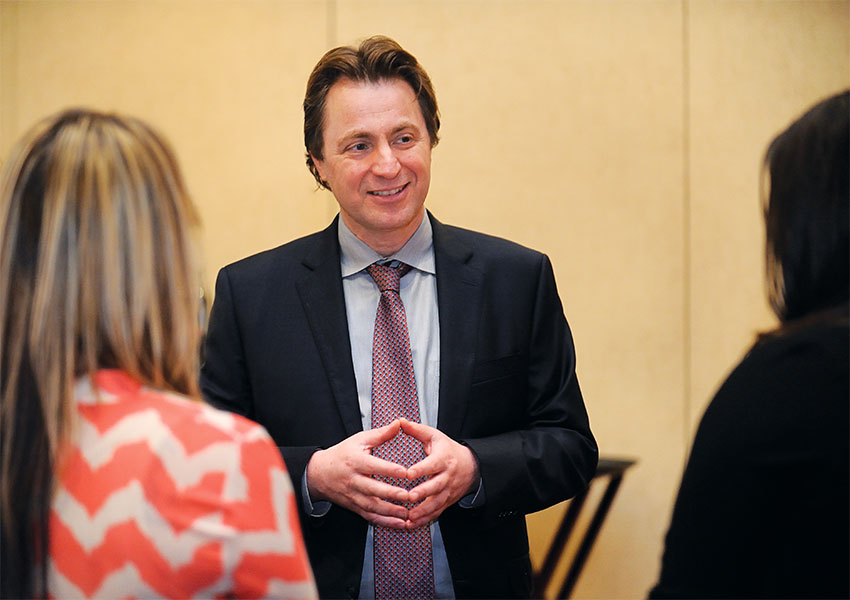
Virginia Tech Provost Thanassis Rikakis at the 2016 Exemplary Department Awards ceremony.
Some of these classes function as gateway courses for a student's chosen major, while others are required across disciplines. That broad swath of enrollees creates instructional challenges, especially in the large classes.
In the physics department, Alma Robinson (physics, philosophy '02, MAED '03), teacher-in-residence at Virginia Tech's PhysTEC program, said she feels a responsibility to prepare students academically and socially. "Oftentimes, students who come to a big university can feel a little bit lost," Robinson said. "Virginia Tech does a really good job of creating community so that doesn't happen."
Many first-year students in the physics department attend classes in what are known as SCALE-UP classrooms with whiteboards on the walls and circular tables for group work.
In the Department of Biology, two introductory courses provide foundational knowledge for about 1,500 students each semester using an approach called the Active Classroom. Students view an online, narrated lecture on their own, and class sessions then are broken into 20 minutes of instructor-led review and an introduction to that day's activity; 45 minutes working in teams; and a 10-minute summary of major conclusions.
Since 1994, the University Exemplary Department or Program Awards recognize the work of programs and/or departments that maintain exemplary teaching and learning environments for students and faculty.
Story contains reporting by Jessie Rogers, a rising senior in the Department of English.
Moment
On stage in the Big Apple
On stage in the Big Apple
Photos by Jim Stroup
Hokies took the stage at Carnegie Hall on April 11, when 165 Virginia Tech students and several of their School of Performing Arts professors performed at the iconic concert venue.
Members of the Virginia Tech Wind Ensemble and the Virginia Tech Combined Choirs — the Chamber Singers, Tech Men, and Women's Chorus — performed at the concert, dubbed Hokies at Carnegie Hall. The students represented all seven of the university's undergraduate colleges.
On their way north, the students stopped in Fairfax, Virginia, to present a concert at the George Mason Center for the Arts.
Dwight Bigler, director of choral activities at Virginia Tech, conducted the Combined Choirs, while Jonathan Caldwell, a visiting assistant professor of music, conducted the Wind Ensemble.
"To perform in Carnegie Hall was a once-in-a-lifetime experience for our students," said Caldwell. "On the world's most famous stage, our students put on a magnificent performance, and I could not be more proud. I just feel fortunate to have been a part of it."
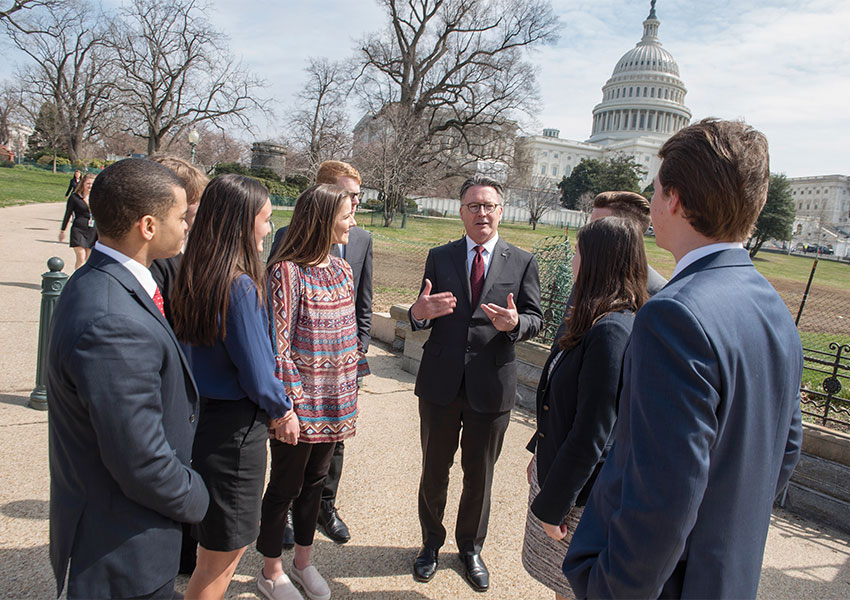
On March 26, a roundtable of experts convened by Virginia Tech met on Capitol Hill for a panel discussion on cybersecurity. During the visit, Virginia Tech President Tim Sands also found time to interact with students in Washington, D.C.
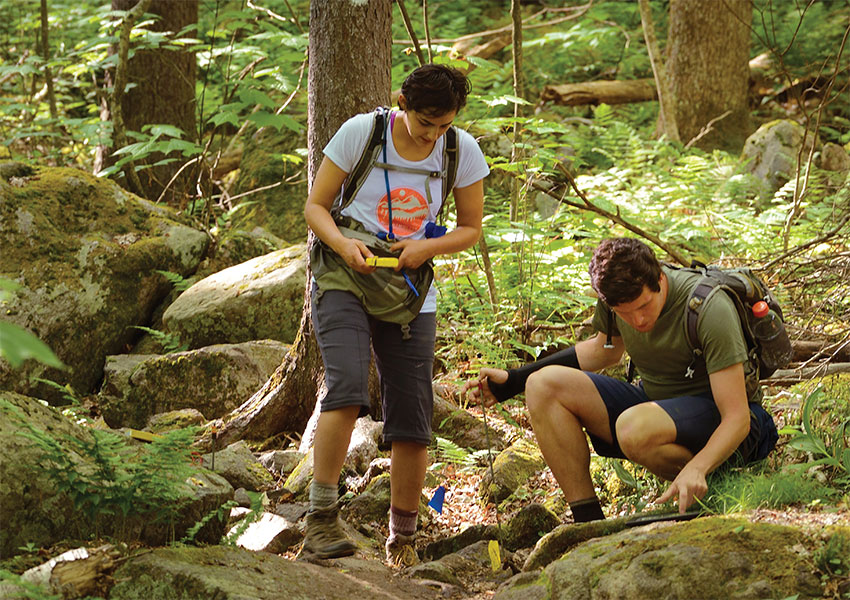
On Sept. 15-17, Virginia Tech will celebrate the 25th anniversary of the College of Natural Resources and Environment, the commonwealth's only college specializing in natural resource education, research, and outreach.
details and registration information →
Established in 1986, Virginia Tech's Ut Prosim Society recognizes alumni and friends whose lifetime giving to the university, as individuals or couples, totals $100,000 or more. During a weekend of special events held March 31-April 1, 148 new members were inducted, and 93 members advanced to higher levels within the society. Membership now consists of more than 2,600 individuals whose unwavering support epitomizes the spirit and mission of Virginia Tech.
